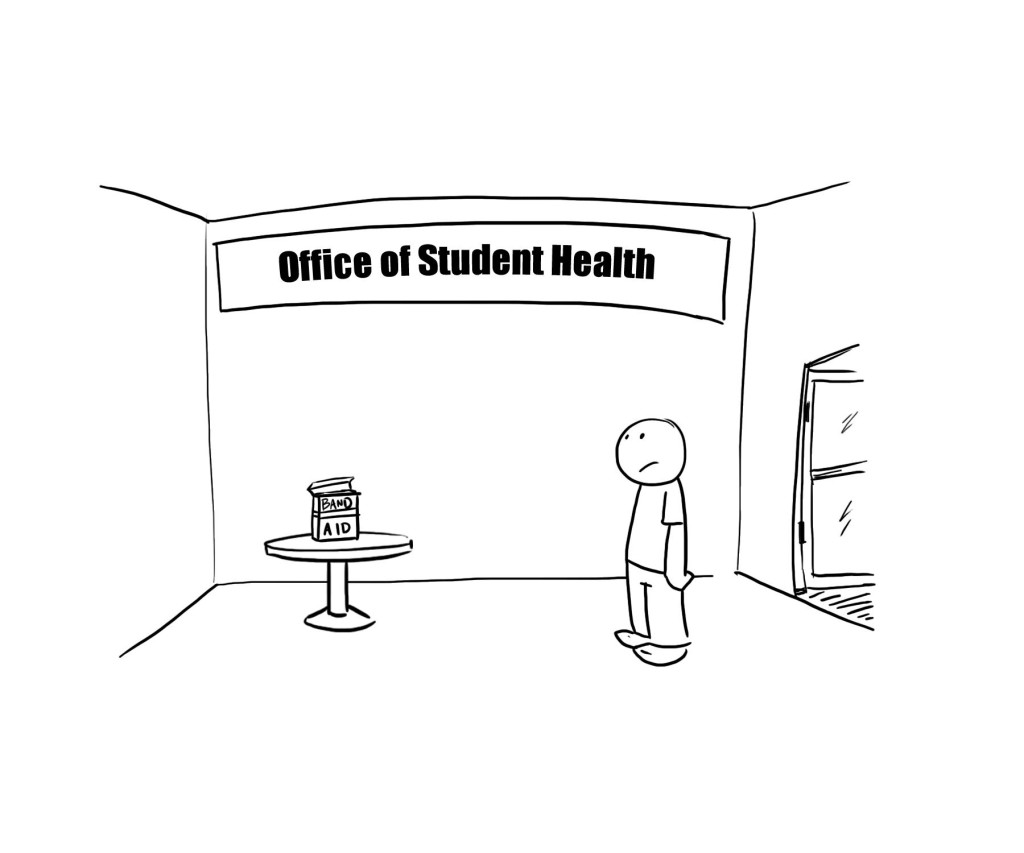Guess what? College students have sex.
Oh, they also get sick and injured, and they are in need of health information.
While headache-ridden students can’t even get a free ibuprofen in between classes, the lack of a health center affects uninsured students.
A 2009 Commonwealth Fund Survey of Young Adults showed about 45 percent of people between the ages of 18 and 29 said that they were uninsured in the previous year.
In March 2010, the Affordable Care Act, which makes it so dependents are covered on health insurance policies until they turn 26 years old, took a dent out the number of uninsured young people.
Even though the law has helped young people, there are many students who live independently or are in need of private and safe health information and services separate from medical care.
In the Oct. 27 issue of The Inquirer, we covered ASDVC’s goals this semester, one of which is obtaining a campus health center.
According to the DVC website, the associated students from all three district campuses worked on creating a proposal for the district governing board in 2005 to obtain campus health services. After two years of governing-board-suggested revisions, Los Medanos College and Contra Costa College pulled out of the plan.
In 2008, The Inquirer covered ASDVC’s efforts to revise a health center plan.
A fee plan to fund a health center was shot down for many reasons, including lack of financial stability. Chancellor Helen Benjamin said, “We want to provide equal services to all students in the district,” while rejecting the creation of health services limited to only DVC.
Even smaller colleges like Laney in Oakland have a health center, why can’t we?
ASDVC continues to advocate for an on-campus health center, which would potentially include services such as flu shots, sexual health support and mental health assistance. At least, DVC offers some help with the latter.
Besides having a list of mental health management links on the DVC website, Disabled Student Services supports students with psychological disabilities.
Quick, easy health information and assistance, however, is left out of the equation. This includes sexual health information and services.
Again, let’s face it; college students have a lot of sex.
According to the California Postsecondary Commission, 13,504 DVC students in 2010 are age 24 and below.
Out of the thousands of young students with limited knowledge of sexual health, how many have safe sex?
In a spring 2011 executive report by the American College Health Association – National College Health Spring 2011 executive report, 43.2 percent of men and women surveyed answered “Not applicable/Didn’t use a method/Don’t know” when asked if they or their partner used contraceptives the last time they had vaginal intercourse.
In fact, women and men between the ages of 20 and 24 had the highest rate of gonorrhea, according to the Centers for Disease Control and Prevention in 2005.
Students need accessible information on sexual health from a licensed professional.
The DVC community needs to support ASDVC in their push for a campus health center. The services provided would not only help students in need but would be a key component to student safety and overall success.
For now, The Inquirer urges DVC students to be careful going down stairs, use protection and carry Airborne at all times.





































































